Easy Way to Find the Greatest Common Factor
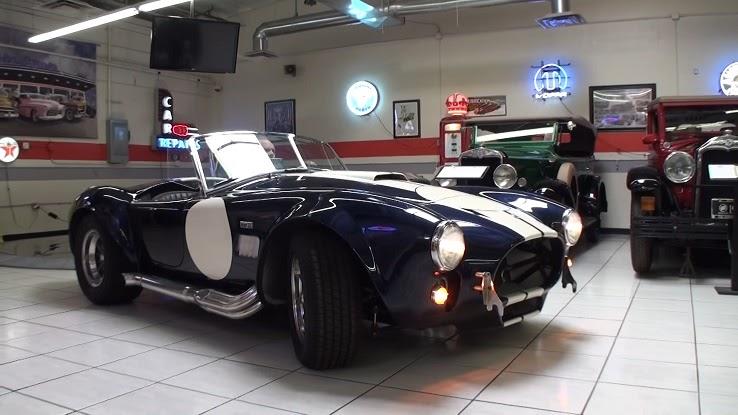
When it comes to cars, nothing is more stylish than a convertible. There's something about the wind racing through your hair as you drive that instills a sense of freedom, and everyone can get behind it.
These convertibles are considered some of the best ones ever made. Trying to purchase one of these nowadays will cost an arm and a leg, but for collectors, it's worth every penny.
Lincoln Zephyr Continental
Ford Motor Company President Edsel Ford once said, "Father made the most popular car in the world. I want to make the best car in the world." In 1939, the first line of Lincoln Zephyr Continental was released to rave reviews from critics. Famed architect Frank Lloydwright even considered it to be the most beautiful car in the world.
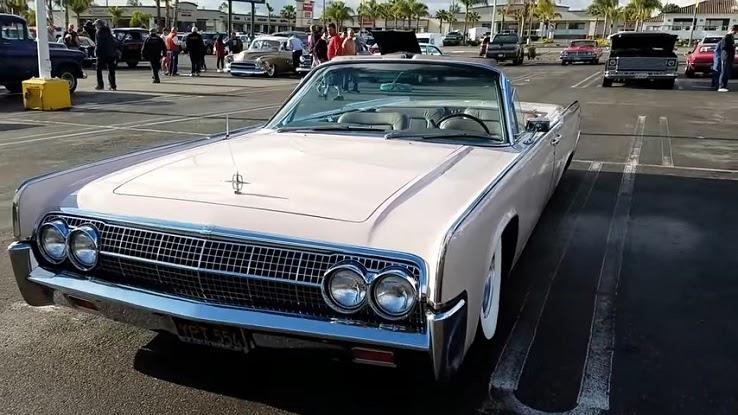
While the Continental went out of production after World War II, new incarnations of it sans "Zephyr" in its name have been released over the decades. In 2019, 6,586 continental models of that year were sold in the United States.
Launched in 1966, the Alfa Romeo Spider almost went under a different name. Alfa Romeo created a contest to give the car a different name, with the winner getting a free car. While Guidobaldo Trionfi won, his suggestion of "Duetto" was shot down due to copyright issues.

The Alfa Romeo Spider stayed on the market until 1993, with the final model being released the following year. Plans to bring back the Spider were tossed around between Mazda and FCA Italy in 2012. Unfortunately, both companies decided to walk away from the idea.
Chevrolet Corvair
In 1960, the Chevrolet Corvair was introduced to the public as an economy car. Because of its low price tag and stylish look, the car quickly became a success with 200,000 vehicles purchased in its first year. By 1965, one million cars were bought by consumers.
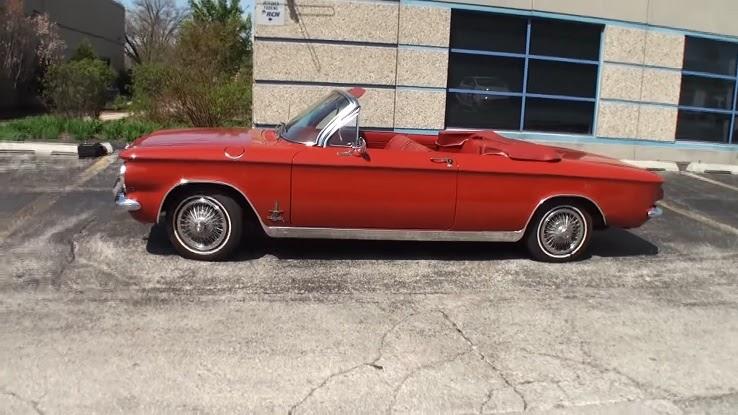
Despite the major sales, production of the vehicle came to an end in 1969, in part because of its appearance in the book Unsafe at Any Speed, which criticized the vehicle for being a safety hazard. The Corvair is still the only American-produced car with a rear-mounted, air-cooled engine.
Austin-Healey Sprite Mark I
The Austin-Healey Sprite Mark I drew some criticism for its design when it was released in 1958. The headlights were placed on top of the bonnet, which led to it gaining the nickname "bugeye." Despite its appearance, however, the vehicle earned Austin-Healey a reasonable profit.
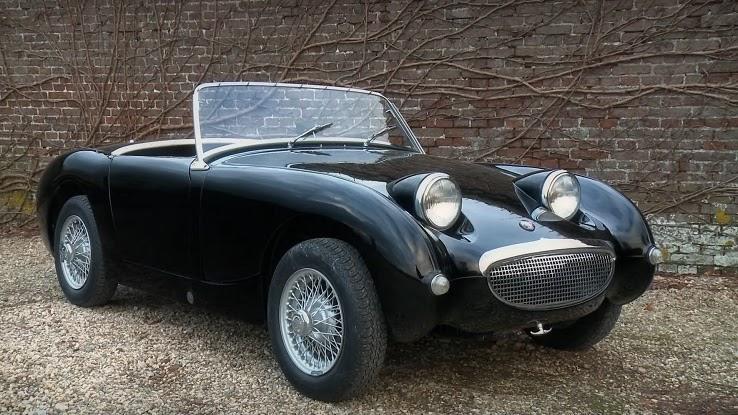
The Austin-Healey Sprite Mark I has a higher asking value at auctions than its successors. Despite its detractors, the car's stylish design was largely popular. Many families in England passed this car down to future generations. It's not rare to see someone riding around through London in one of these today.
Chevrolet Bel Air
Before Will Smith made Bel Air cool, Chevrolet took to the streets with the Chevrolet Bel Air. The first model of the car featured a non-detachable roof, which was a rarity at the time. The feature led to fewer vehicles being sold during its first year.
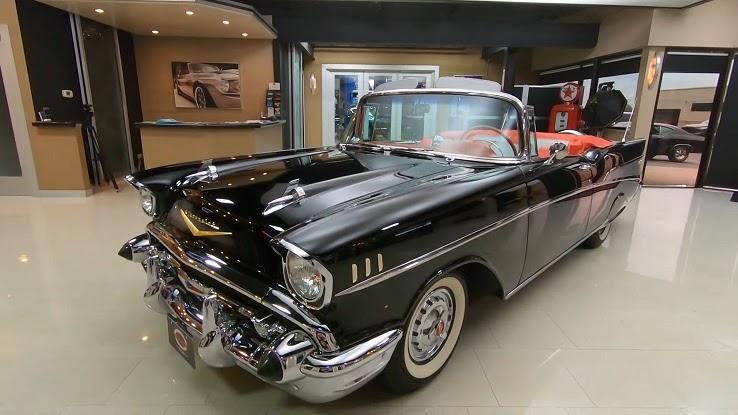
While production ceased in the United States in 1975, it continued in Canada until 1980. In 2002, a concept model of the original Chevrolet Bel Air was displayed at the North American International Auto Show. Unfortunately, General Motors chose to not pick it up for production again.
Bugatti Veyron 16.4 Grand Sport Vitesse
Bugatti expanded on its popular Veyron line with 2012's Bugatti Veyron 16.4 Grand Sport Vitesse, which premiered at the Geneva Motor Show that same year. The first model was released for a whopping $2.2 million, which is part of why many people never even heard of it.
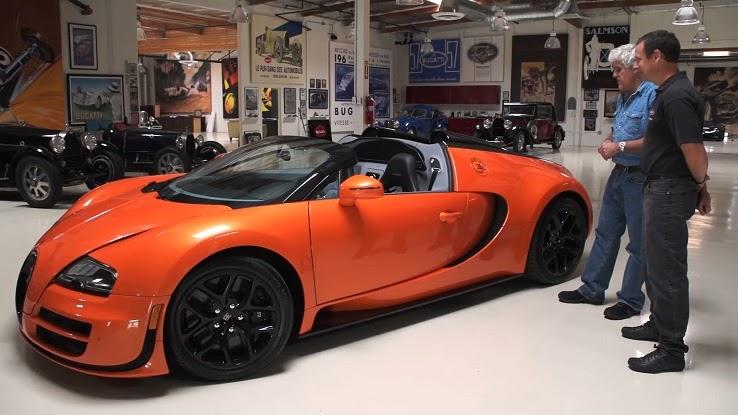
Unfortunately, despite its sleek appearance, the asking price of the car didn't sit well with many consumers, and sales didn't meet expectations. In 2015, this line ended production with the Bugatti Veyron 16.4 Grand Sport Vitesse La Finale.
Triumph Spitfire
Italian designer Giovanni Michelotti had a hand in developing the Triumph Spitfire, which was released back in 1962. The car got its name after the Supermarine Spitfire World War II fighter plane. The Mark I sold around 45,000 vehicles.
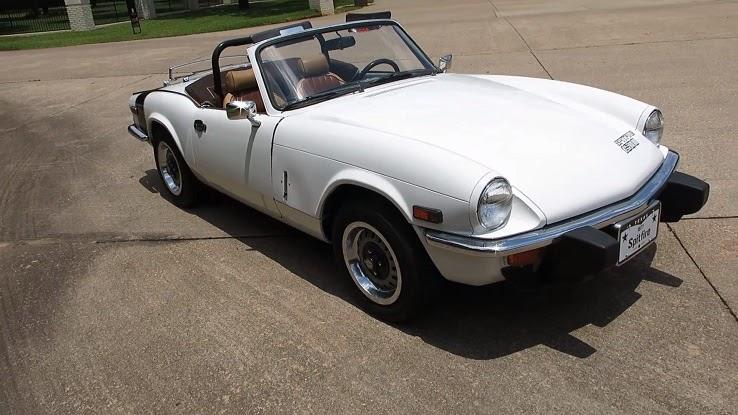
The last model sold to the public was the Triumph Spitfire 1500, which saw production from 1974 to 1980. The final Spitfire, which was Inca yellow, was showcased in 1980. The model was never sold anywhere, but it can be seen at Gaydon's British Motor Heritage museum. Die-cast models were released in 2000 by Vitesse and Lledo Vanguards.
Cadillac Eldorado
The Cadillac Eldorado was created for a special competition within General Motors. The name was suggested by secretary Mary-Ann Marini, who had a background in marketing. While it was originally meant to be a limited-edition car, strong vehicle sales changed things.
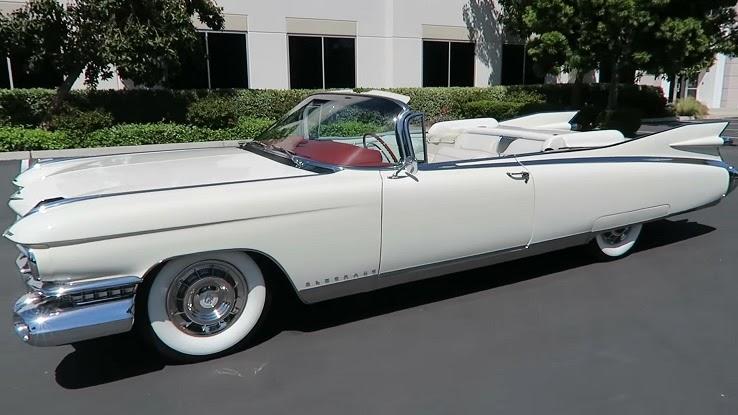
For 50 years, the Cadillac Eldorado gained devoted fans over 12 generations. In 2002, however, production ceased on the vehicle. The final Eldorado made is currently in the Cadillac Museum. At the time of its closure, the vehicle was the final K-body car to be produced.
Ford Mustang
The Ford Mustang is one of the most recognizable cars of all time thanks to James Bond. The vehicle was prominently featured in the films Goldfinger and Diamonds Are Forever. During its first year on the market, the Ford Mustang sold 121,538 vehicles.
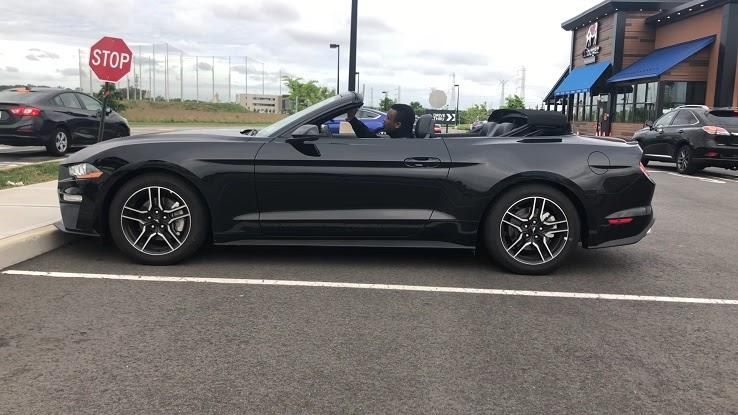
The Ford Mustang is the only pony car to still be produced worldwide today. The vehicle has earned fans with NASCAR drivers Billy Johnson, Tommy Kendall and Jack Roush Jr. In 2016, it earned its seventh appearance in the Car and Driver 10 Best list. In 2020, it gained a modern update as an electric SUV.
Chevrolet Corvette Stingray
The second generation of Chevrolet Corvettes introduced the world to the Sting Ray. Developed by iconic designer Larry Shinoda, the vehicle turned heads with its hidden headlamps, four-wheel disc brakes and independent rear suspension. After 1967, the vehicle was restyled the Stingray.
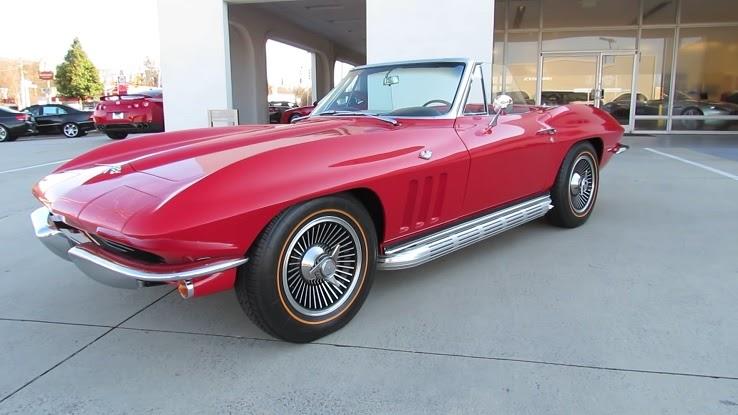
The vehicle saw a huge spike in popularity with 2009's Transformers: Revenge of the Fallen, which featured the Autobot Sideswipe in Stingray form. This led to the Stingray being revived by Chevrolet in 2014 three decades after it was last made.
MG MGB
Following two years of production, the MG MGB was finally released to the public in 1962. This vehicle introduced drivers to the concept of crumple zones, which protect the driver from high-speed impacts. The car could go from zero to 60 mph in 11 seconds.
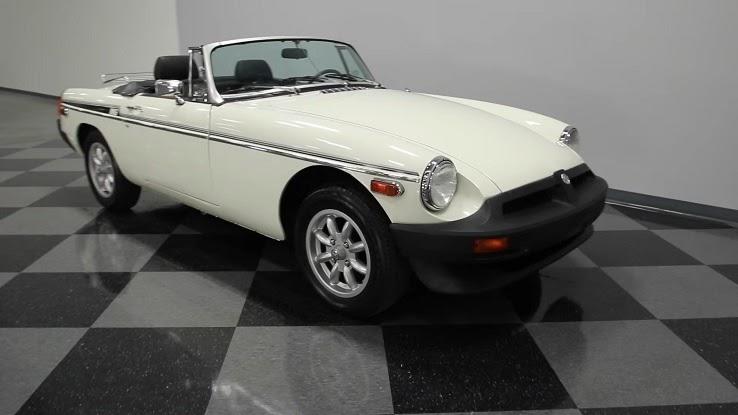
The MG MGB ceased production in 1980, but it was revived in 1992 as the MG RV8. This limited-edition debuted at the British International Motor Show but only saw 2,000 units sold around the world. A majority of them — 1,579 vehicles — were sold in Japan. Only 300 were sold in the U.K.
Ferrari 275 GTS/4 NART Spyder
Ferrari wanted to give their 275 GTB/4 model a special upgrade. In 1967, they delivered big time with the 275 GTS/4 NART Spyder. This car was named after Luigi Chinetti's North American Racing Team. While 25 vehicles were ordered, only 10 were produced due to poor sales.
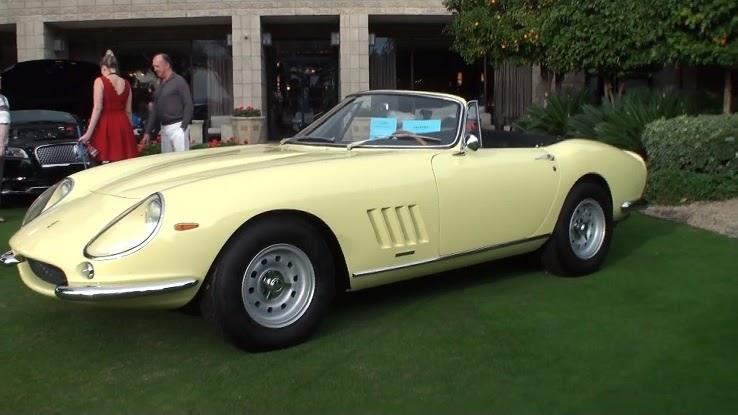
Today, having a Ferrari 275 GTS NART Spyder is a dream for car aficionados. In 2013, one Spyder was sold for an outstanding $25 million at an auction. Ironically, if they'd been that popular back in the day, there would be far more around now.
Porsche 914
Volkswagen and Porsche joined forces to create the Porsche 914 in 1969. Back then, Porsche had a contract with Volkswagen to handle its product development, with one last vehicle due before the contract was concluded. Volkswagen selected the 914 project because it wanted a new sports coupe.
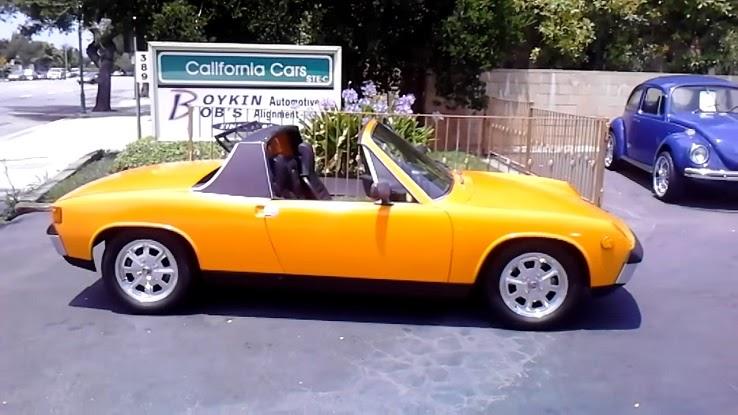
From 1969 to 1976, only 118,978 models were produced. A rare prototype titled 914/8 can be seen in the Porsche Museum. Decades after it went out of production, Porsche 914s still find their way into movies and TV shows. In recent years, the model was featured in Straight Outta Compton and Finding Steve McQueen.
Ford T-Bucket
Norm Grabowski brought Ford's T-Bucket to back life in the 1950s, and hot rods haven't been the same since. An appearance on the hit show 77 Sunset Strip drew a slew of new eyes towards this vehicle. While it's visually appealing, the engine has cooling issues.
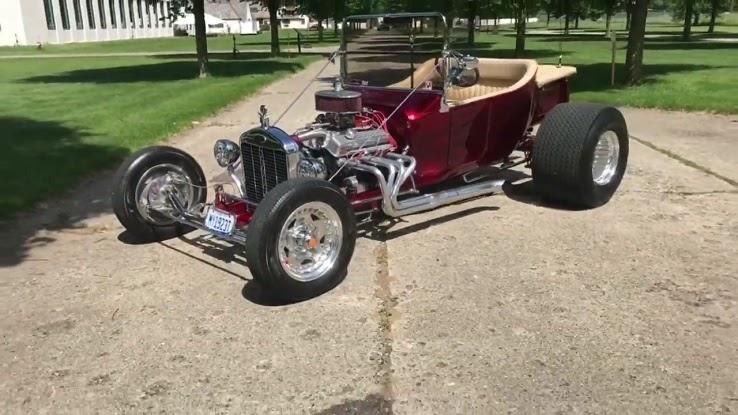
Ford T-Buckets still live on through various car showcases and exhibition races. Modern T-buckets fix the heating problem by replacing the original brass radiators with aluminum. Superchargers have also been installed on certain vehicles to deliver maximum speed.
Pagani Zonda Roadster
Italian car manufacturer Pagani upgraded its popular Zonda S 7.3 line with the 2003 Zonda Roadster. While the car had an open top installed, it still featured the same parts from the Zonda S 7.3. The original model only had 40 vehicles produced.
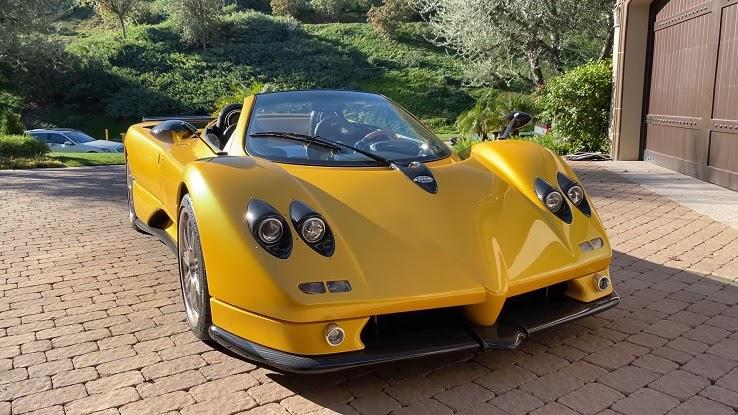
In 2006, the company tried their luck again with the Zonda Roadster F, which had a removable roof. Much like the 2003 Zonda Roadster, this updated version saw a limited run. With only 25 vehicles produced, it remains a highly sought after item at car auctions. The original sale price was $1.4 million.
Jaguar E-Type
Taking inspiration from their own D-Type racing car, Jaguar began work on the E-Type Series. When released in 1961, it was praised for its sleek design. Designer Enzo Ferrari declared it "the most beautiful car ever made," and no one challenged his words.
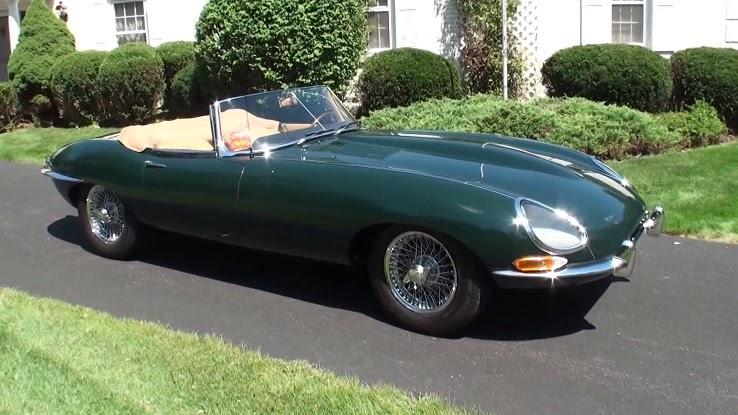
The E-Type Series lasted from 1961 through 1975. In 2014, Jaguar's Heritage Business created a limited-run of E-Type vehicles. 12 were built, but they weren't available to the public. Only the biggest collectors in the world got a chance to grab one of these cars.
Studebaker Lark
The Studebaker Corporation turned investors' heads with their Lark compact car. Because bigger car companies didn't have compact cars yet, the Lark became a huge success with car owners. Over time, the Lark was reimagined as the Cruiser, Commander and Daytona.
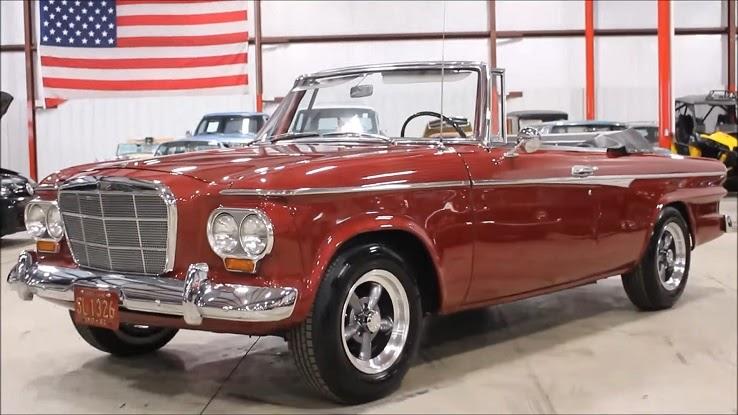
The Studebaker Corporation ceased production of the car in 1966. Israel company Ilin Plant created Lark cars until the following year. The final car manufactured in Canada currently resides in Indiana's Studebaker National Museum. While Larks can go for huge dollars at auctions, the prototypes can fetch even more money.
Jeep Wrangler
Jeep Wranglers might fool people into thinking they're mainly SUVs, but they have all of the traits of a convertible. These vehicles are known for their top-notch handling and comfort. With anti-roll bars, it's hard to flip the vehicle during an accident.
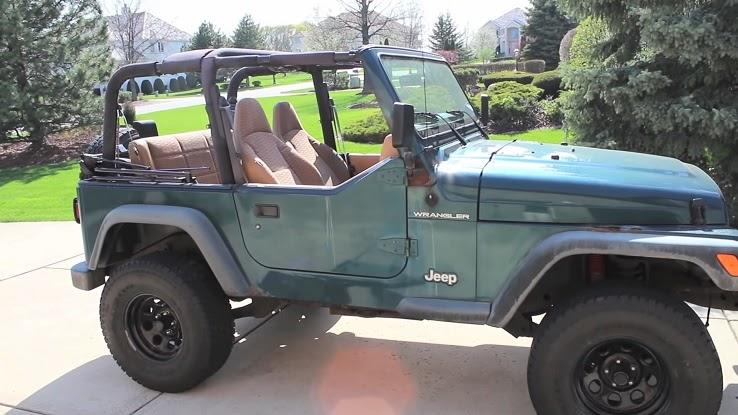
Over the years, Jeep Wranglers major accolades for their designs. Petersen's 4-Wheel & Off-Road gave the vehicle its prestigious 4×4 of the Year award in 1997, 2007 and 2012. Four Wheeler named the Jeep Wrangler Unlimited Rubicon 4×4 of the Decade in 2010. In 2019, 228,032 Wranglers were sold in the United States.
Mazda Miata
The Mazda Miata delivers incredible power for such a small frame. Debuting at the 1989 Chicago Auto Show, the vehicle sold an impressive 400,000 units during its first eight years. In Japan, the vehicle is known as either the Mazda Roadster or Eunos Roadster.
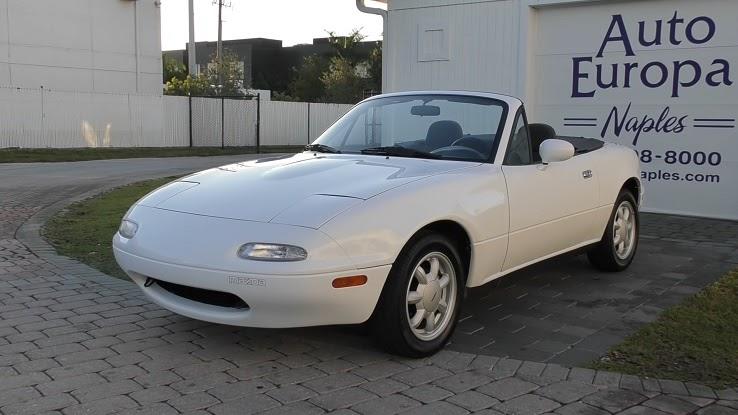
In 2000, the Miata earned the Guinness World Record for best-selling two-seat sports car ever. In 2016, they celebrated their 1,000,000th Miata made by allowing fans around the world to sign it. Overall, nearly 960,000 Miatas have been sold since its launch. It won't be long until they hit their millionth car sold as well.
Lotus Elan
Lotus Cars had their first hit with the Elan, which was launched in 1962. The vehicle was a fan favorite because of its smooth acceleration, steering and handling. Celebrities who have owned a Lotus Elan include former talk show host Jay Leno and actor Paul Newman.
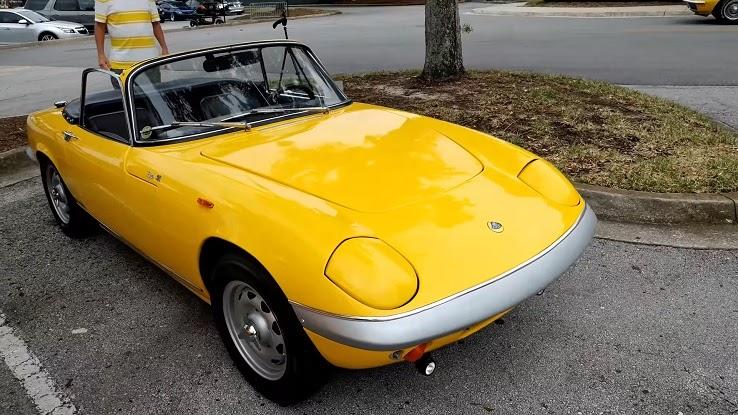
In 1995, Lotus ceased production of the Elan, but Kia picked it up as part of their purchase of the company's production rights. In 2010, a new Elan was revealed at the Paris Motor Show. Kia had its sights set on a 2013 release, but plans were later canceled.
Honda S2000
At 1995's Tokyo Motor Show, a select group got their first glance at the Honda S2000. Four years later, the vehicle had its official launch to commemorate Honda's 50th anniversary. The vehicle landed on Car and Driver's 10 Best list during its first year.
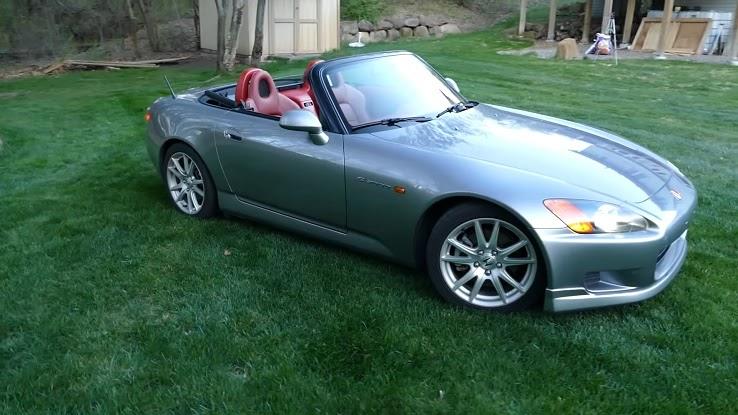
In 2009, Honda ceased production of the vehicle, but they didn't go out without a bang. They unveiled the limited-edition S2000 Ultimate Edition and GT Edition 100 in Europe, which has a unique black S2000 badge. Only 100 units were made.
Porsche Boxster
20 years after Porsche 914's final run, Porsche hopped back into the roadster game with the Porsche Boxster. Released in 1997, this vehicle saw a slew of cupdates, including updated windows, engine and steering wheel.
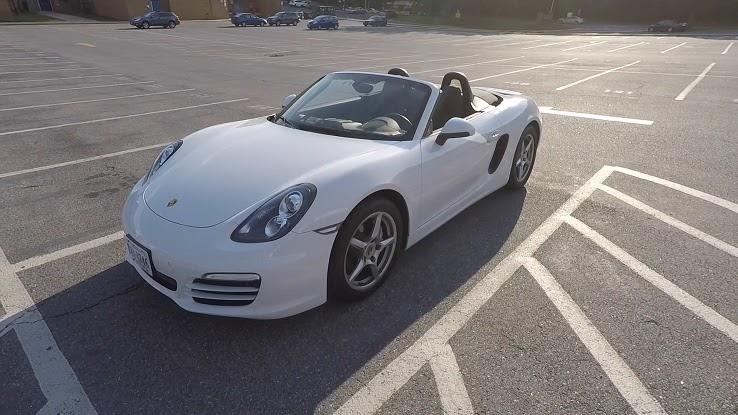
The Boxster took center stage at events such as the BRSCC Porsche Championship and Continental Tire Sports Car Challenge. In 2000, the car was declared Best Sports Car of the Decade by The Philadelphia Inquirer. Today, the Boxster is known as the Porsche 718 Boxster.
Toyota MR2
Upon its release in 1984, the Toyota MR2 became Japan's first mid-engined production car. Work started on the vehicle in 1979, and the public got their first peek at the 1983 Tokyo Motor Show. In 2007, Toyota ceased production of the vehicle following low sales.
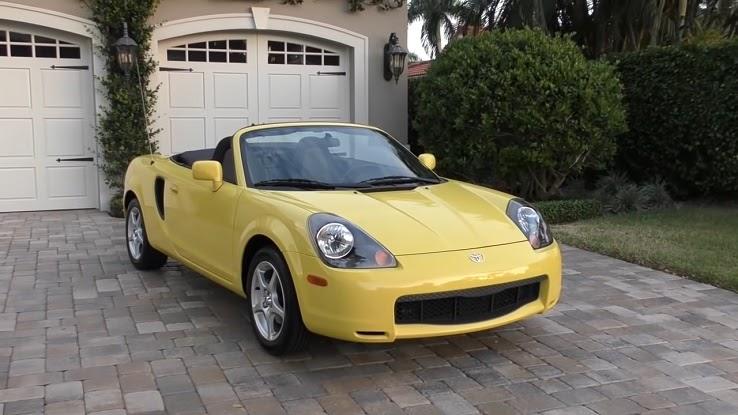
When it was time to say goodbye, Toyota gave collectors a treat with some limited-production MR2 vehicles. These V-Edition cars included body changes and different tire colors. They were only sold in Japan and the U.K., which is where most units of the original car were sold.
Shelby Cobra
Known as the AC Cobra in the U.K., the Shelby Cobra was a collaboration between AC Cars and Shelby American. Designed to compete against Chevrolet's Corvette, the car found success initially, but decreasing sales forced production to cease in 1967.
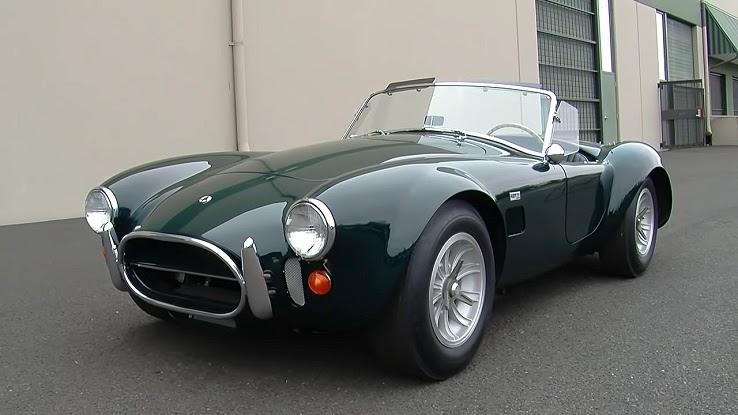
Since Shelby Cobras have been off the market, Ford and Shelby American have unveiled new versions of the Cobra. In 2004, Ford released a modern take on the iconic vehicle. In 2014, 50 Cobras were released in celebration of the 427 Shelby Cobra's 50th anniversary. Acedes Holdings LLC has been authorized to create Cobras with aluminum body models.
Volkswagen Beetle Cabriolet
The Volkswagen Beetle Cabriolet stemmed from Wilhelm Karmann making changes to his Beetle. The former Karmann CEO transformed his Beetle into a four-seater convertible. After seeing his creation, Karmann decided to start production on the Volkswagen Beetle Cabriolet, which included a folding top.
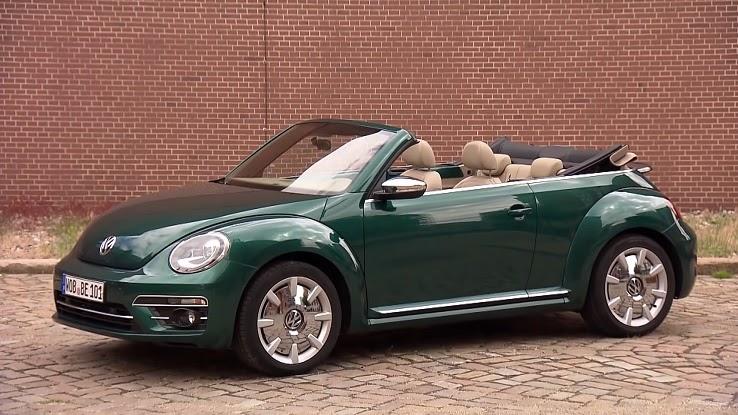
Unlike other vehicles on the market at the time, the Volkswagen Beetle Cabriolet included ashtrays, a mirror on the passenger side and twin map pockets. However, in 1980, Volkswagen ceased production on the vehicle. Meanwhile, the aforementioned features of the Volkswagen Beetle Cabriolet had already been introduced to some standard Beetle models in 1970.
Mercedes-Benz SL-Class
With the aid of American importer Max Hoffman, Mercedes-Benz delivered the SL-Class sports car back in 1954. For years, the abbreviation "SL" confused many in the car industry. While many believed it stood for "Sport Leicht," Mercedes-Benz stated it actually stands for "Super-Leicht."
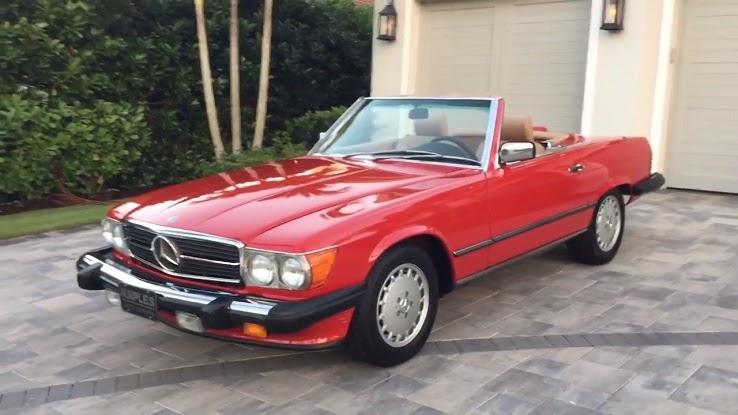
Over the decades, the Mercedes-Benz SL-Class has gone through various changes to aid customer's requests. In 2016, it had its biggest change to date with the addition of a biturbo V6 mated engine. U.S. sales of the vehicle have been steady with around three million vehicles sold yearly.
BMW 3 Series
BMW found the perfect replacement for the BMW New Class with the BMW 3 Series. Unveiled in 1975, the first generation was hindered by its availability as a two-door sedan. Over the years, the BMW 3 Series moved to include station wagons and four-door sedans.
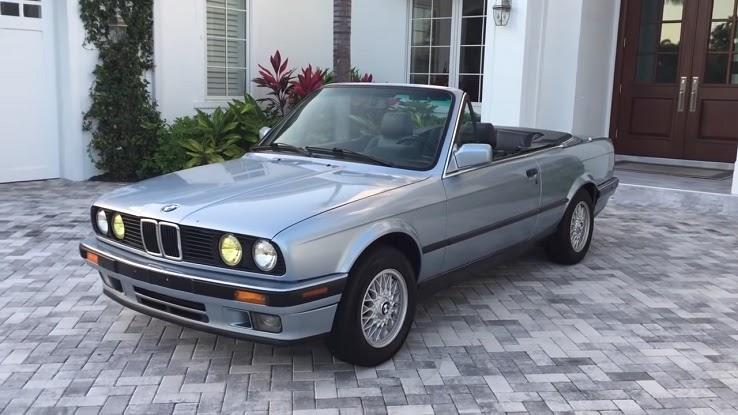
The BMW 3 Series is the car company's biggest-selling model ever. These cars make up 30 percent of the company's overall sales. While there is a BMW 4 Series, people still flock to what they're familiar with. In 2019, the BMW G20 sedan and BMW G21 station wagon were released to the public.
Chrysler LeBaron
In the 30s, the Chrysler LeBaron made traveling smoother as a luxury car. Following 1941, the company saw a financial downfall, which led to fewer models made. In 1955, it saw a resurgence, kicking off a nearly 40-year run with impressive sales for Chrysler.
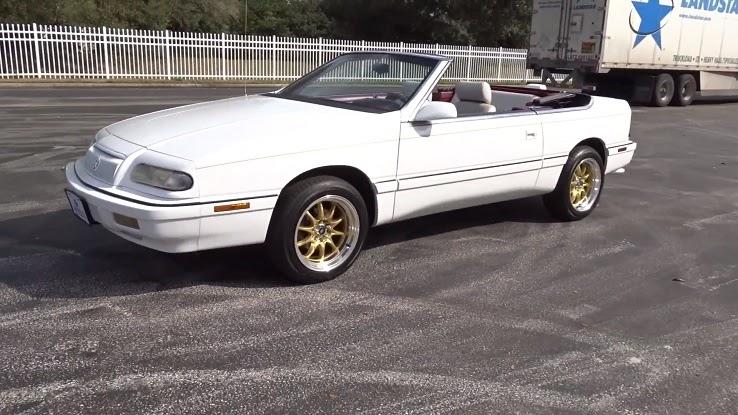
In 1994, the Chrysler LeBaron was discontinued following decades of service. While it was gone from the market, the car was still prominent in the racing circuit. The Automobile Racing Club of America built LeBaron cars for drivers to use in 1988, and they remained in use until 1998.
Pontiac GTO
Following a ban on auto racing, Pontiac looked towards their Pontiac Tempest for inspiration on new designs. With a heavy focus on street performance, they used the Tempest as a template for the Pontiac GTO. Released in 1964, the car was considered to be the first big muscle car on the market.
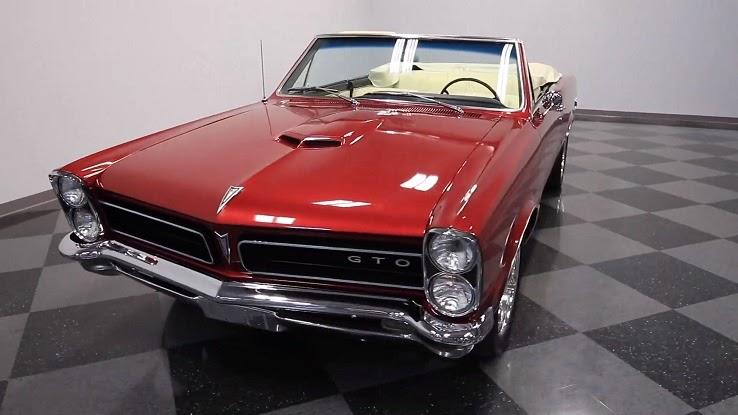
In 1973, Pontiac discontinued the original GTO after a decade of poor sales. While the GTO was revived in 2004, it was a complete 180 from its older version. As a 2-door coupé, the newer GTO had a shorter sales lifespan with only a two-year run.
Ford Thunderbird
When it entered the market in 1955, the Ford Thunderbird became the first personal luxury car. In 1959, it became a major part of NASCAR with several drivers hitting the track in the vehicles. Driver Bobby Allison walked away with 13 wins in his Thunderbird.
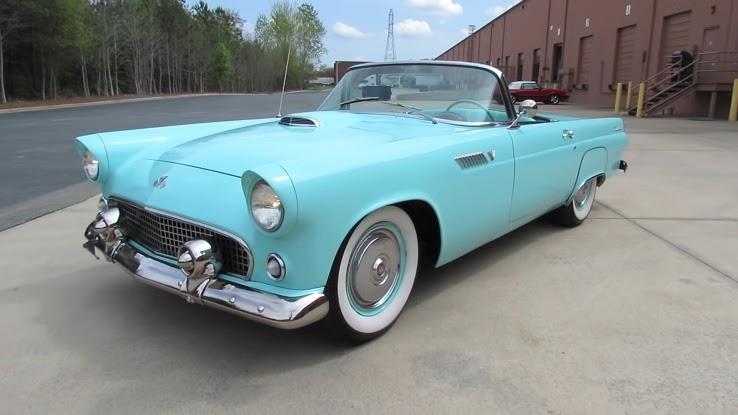
While the Thunderbird was discontinued in 1997, it returned in 2002. Unfortunately, the reboot didn't sit well with buyers. The final Thunderbird was manufactured in 2005. Unsurprisingly, the older models sell high, with some going for nearly $500,000.
cashwelllouns1959.blogspot.com
Source: https://www.faqtoids.com/travel/what-are-the-greatest-convertibles-of-all-time?utm_content=params%3Ao%3D740006%26ad%3DdirN%26qo%3DserpIndex&ueid=e735a47b-8ff2-4f9c-9cdf-aeef43131ad6
0 Response to "Easy Way to Find the Greatest Common Factor"
Postar um comentário